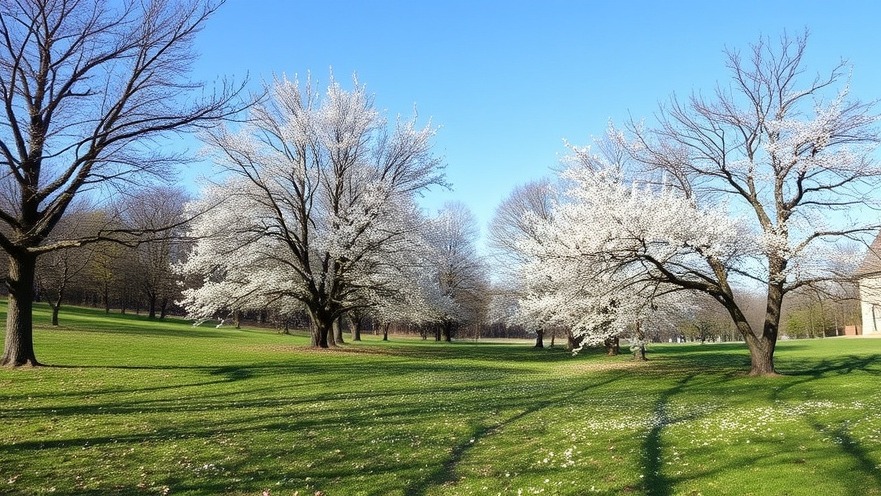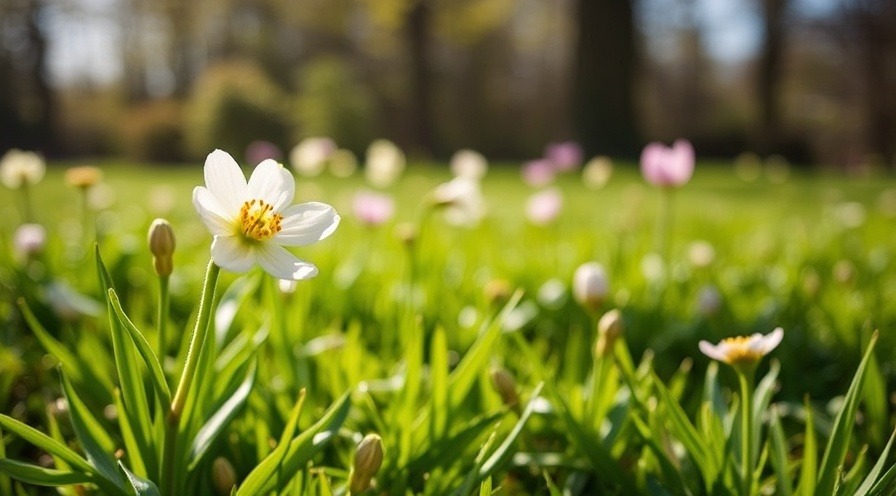
Decoding the Yellow Dust Mystery in North Carolina: More Than Meets the Allergy Eye
Have you ever stepped outside lately in North Carolina, only to find your car, your porch, and seemingly every outdoor surface coated in a fine layer of yellow dust? It's a sight so common it's practically a hallmark of the season.
For many, this vibrant yellow blanket immediately triggers thoughts of sneezing fits, itchy eyes, and the familiar discomfort of seasonal allergies. But what if we told you that this seemingly notorious yellow dust might not be the primary villain in your allergy story?
Buckle up, because we're about to embark on a fascinating journey into the world of pollen, uncovering the secrets behind that pervasive yellow coating and shedding light on what truly stirs up springtime sniffles in the Tar Heel State.
Dr. Robert Cartwright, MD, cuts right to the chase in the article "Allergies 101: What the Yellow Dust on Your Car Really Means":
"With tree pollen counts soaring from as early as the end of February through April, it would be reasonable to believe that the blanket of yellow particles is the primary culprit behind the onset of seasonal allergies. Spoiler alert: it’s not true".
This bold statement immediately challenges our assumptions and invites us to delve deeper into the truth behind this seasonal phenomenon.
So, what exactly is this ubiquitous yellow dust that seems to settle on everything in North Carolina? "The yellow 'dust' you're seeing on surfaces in North Carolina, is actually pine pollen...". This pollen originates from coniferous trees, the evergreens that are a familiar part of the North Carolina landscape. The sources are common North American conifers, such as pine trees, as well as spruce, fir trees, larch, and hemlock.
While the specific types might vary across the state, the presence of these coniferous forests ensures a seasonal release of this characteristic yellow pollen. In the Southeast, this pine pollen season typically kicks off in late February or early March and can extend until May or June.

Now comes the surprising twist that Dr. Cartwright alluded to. Despite its overwhelming visibility, pine pollen is "not likely what is causing your seasonal allergy symptoms". Many sources concur on this point. While pine pollen is abundant, "it's usually too large to enter the sinuses and cause allergy problems". Dr. Cartwright elaborates on this, explaining that "yellow pollen is much heavier than other tree pollen.”
This weight means that when pine trees release their pollen, it tends to fall directly to the ground, or onto nearby surfaces, rather than becoming easily airborne and reaching our nasal passages. Think about parking your car under a pine tree in the spring – the thick layer of yellow that accumulates is a testament to this direct fall.
Adding to that, the physical characteristics of pine pollen contribute to its lower allergenic potential. Dr. Cartwright points out that
"pine pollen is much larger than other tree pollen so that it cannot get up into the nasal passages as easily as smaller pollen.” Adding another layer of protection, "pine pollen has a waxy coat on it which prevents the protein inside of the pollen from leading to allergic reactions".
It's almost as if nature designed this prominent pollen to be more of a nuisance in terms of cleaning than a trigger for our immune systems.However, this doesn't mean that all yellow pollen is innocent. The article on "Allergies 101" draws an important distinction when it discusses cedar trees. "Like their coniferous cousins, cedar trees release yellow, dust-like spores into the air. The difference is that the pollen of the cedar tree is much smaller and finer, allowing for the grains to be picked up and carried by the wind. It is that same wind that then blows the pollen into people’s eyes, nose, and lungs, thereby causing seasonal allergy symptoms".
This highlights a crucial point: while the heavy, visible yellow pollen of pine trees is less likely to cause allergies, other coniferous trees, like cedar, produce a finer, wind-borne yellow pollen that can indeed be a significant allergen. In regions like central Texas, Mountain Cedar pollen is prevalent from December to February, leading to what's commonly known as "cedar fever". In the Southeast, the Eastern Red Cedar contributes to typical hay fever symptoms in the early spring.

So, while you might be tempted to blame that thick layer of yellow on your car for your itchy throat, the real culprits are often the less visible, smaller pollen grains carried on the breeze. As the Asthma and Allergy Foundation of America (AAFA) notes, tree pollen is one of the three most common causes of seasonal allergies. It's just that "not all pollen is created equal".
Even though pine pollen might not be the primary allergy trigger, coming into contact with it can still cause discomfort. Dr. Cartwright advises that
"even though pine tree pollen is not often responsible for seasonal allergy symptoms, if you have come into contact with the yellow dust, do your best not to touch your face, particularly your eyes, as that can cause itchiness and irritation".
This is a simple yet important piece of actionable advice.Understanding the timing and environmental factors affecting pollen is also key. We found that pine pollen is typically prevalent in the spring, potentially starting as early as January in warmer climates and usually seen from March through April. Additionally, weather plays a significant role. The ACAAI states that "pollen counts are usually at their highest in the morning".

Rain can offer temporary relief by washing pollen away, but the AAFA points out that "pollen counts can increase exponentially after rainfall when the water evaporates and leaves the smaller particles of pollen still in the air". And unsurprisingly, "on windy days, pollen counts surge".
While the heavy yellow pollen might not be the main allergy offender, managing its presence can still improve your comfort during the spring. Dr. Cartwright offers several practical tips:
"Keep windows and doors shut as often as possible, and run an air purifier".
"Replace and/or clean the filter on your air-conditioner. A HEPA filter will trap more pollen".
"Wipe your feet before coming indoors so as not to track pollen into your home".
"Avoid hanging clothes outside to dry".
"Wipe down surfaces in the home and vacuum carpets and/or rugs daily".
"Wash pets that spend time outdoors".
"Wax your car. It helps the pollen dust slide off rather than accumulate".
"Take a shower, wash your hair, and change your clothes after spending time outdoors".
"Wear glasses or sunglasses outdoors to help keep pollen out of your eyes".
If you are experiencing bothersome allergy symptoms, even if you suspect the yellow dust, it's wise to consider consulting with your doctor, an allergist or immunologist if a long-lasting antihistamine is right for you. Allergists can help identify your specific triggers and develop a personalized treatment plan.

In conclusion, the seemingly overwhelming yellow dust that coats North Carolina in the spring is primarily pine pollen, a relatively heavy and large pollen grain that is less likely to be the main cause of your seasonal allergies. The true culprits often lie in the smaller, wind-borne pollens from other trees, including certain types of cedar.
Understanding this distinction can empower you to focus on broader pollen management strategies and seek appropriate relief for your specific allergy triggers. Don't let the visible yellow cloud deceive you; by understanding the nuances of pollen and taking proactive steps, you can navigate the allergy season with greater comfort.
If springtime sniffles are impacting your life, consider connecting with the allergy specialists at a reputable practice to gain personalized insights and develop a tailored plan to breathe easier. Take control of your allergy journey and enjoy the beauty of the North Carolina spring, minus the unnecessary suffering!
 Add Row
Add Row  Add
Add 




 Add Row
Add Row  Add
Add 

Write A Comment